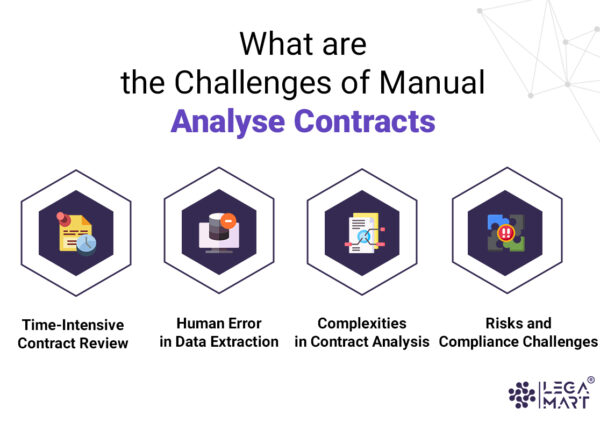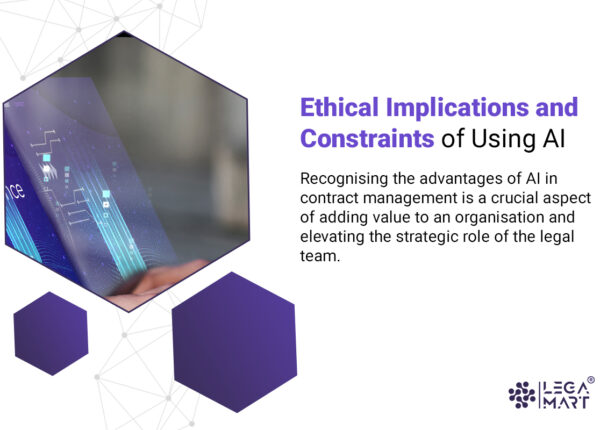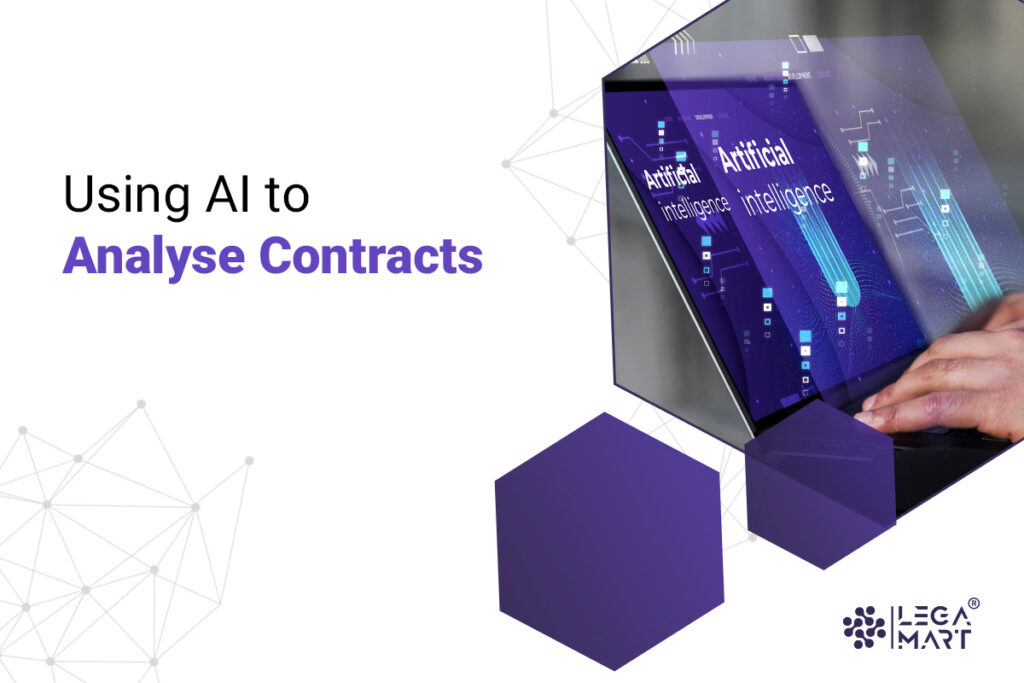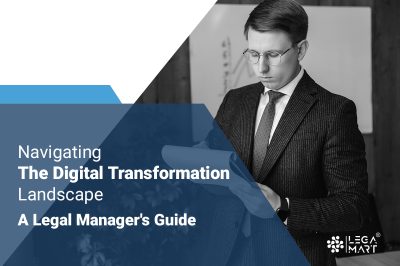Introduction
The space of contract review is undergoing a transformative shift fueled by artificial intelligence (AI). Advances in machine learning and syntactic processing have significantly bolstered the precision of contract analysis, diminishing the reliance on manual, time-consuming methods.
A survey conducted by DocuSign indicates that 68% of contract professionals search for completed contracts weekly, with the majority spending one to six hours tracking obligations. One in four professionals invests over an entire workday in these tasks.
To tackle such issues, there have been new AI tools to analyse contracts like Ironclad’s contract negotiation tool, which uses GPT-4, has improved legal reviews by 20 times, suggesting edits based on guidelines, making contract negotiations more efficient, as mentioned by a former corporate lawyer based in Silicon valley. Using AI to analyze contracts streamlines the traditionally time-intensive process, offering quicker insights and minimizing manual efforts in legal document review and interpretation.
This article delves into the substantial progress witnessed in AI technology, elucidating the benefits it brings to the contract review process. It showcases how AI to analyze contracts is at the forefront of revolutionizing how businesses comprehend and navigate the complexities of their agreements.
What is the Need of AI to Analyse Contracts?
Historically burdened by inefficiencies and resource demands, streamlining the contract review process presents a formidable challenge. Even with template use, working on manual updates and modifications requires substantial human effort, intensified by meticulous proofreading under deadline pressure. Communication gaps often necessitate additional clarification via phone or email, further complicating an already labour-intensive task. The financial toll is significant, with studies indicating potential costs of up to 9% of annual revenue due to suboptimal contract management processes.
The solution lies in AI contract analysis software, a transformative force leveraging language analysis, customisable rules, and machine learning. By automating tasks such as updating and revising contracts, AI minimises manual labour, expedites processes, and delivers substantial time and cost savings. The reliability of AI results ensures consistent and accurate interpretation of complex language structures, aligning contracts with predefined rules. Embracing AI to analyse contracts represents a strategic shift towards efficiency, cost-effectiveness, and enhanced overall business outcomes.
What are the Challenges of Manual Contract Analysis?

Time-Intensive Contract Review: Analysing contracts involves a meticulous page-by-page and section-by-section examination by the in-house legal team. With varying contract lengths and clause complexities, it takes hours for lawyers to locate specific languages, creating a time-intensive process.
Human Error in Data Extraction: Extracting data from lengthy and complex contracts, laden with legal jargon and potential ambiguities, poses a risk of human error. Cross-referencing other documents, regulations, or statutes and potential translation needs further amplify the challenges, demanding substantial time and effort to analyse the agreements.
Complexities in Contract Analysis: Contracts exhibit diverse structures, including free-form language, numerous sections, subsections, and intricate details. Dealing with multiple parties, each with its own set of contracts, adds complexity. Additionally, linguistic and cultural differences in contracts from different countries contribute to the difficulty, making analysis time-consuming and error-prone.
Risks and Compliance Challenges: The dynamic legal landscape introduces potential future risks, emphasising the need for thorough contract analysis. Ensuring adherence to evolving local and global legislations and compliance laws is challenging. Poorly organised contracts increase the risk of overlooking amended clauses, leading to non-compliance and potential financial penalties. Utilising contract playbooks with clear terms and fallback clauses becomes crucial to mitigate these risks and compliance challenges.
What is AI Contract Review Analysis?
AI contract review and analysis involve leveraging software capable of comprehending and extracting pertinent information from contracts. This technology aids in the identification of crucial clauses, obligations, risks, and opportunities within contracts, enabling comparison with established standards, best practices, and market benchmarks. Additionally, AI facilitates the generation of concise summaries, reports, and insights from contracts while highlighting any potential issues or anomalies that warrant attention.
Check out our article on preparing for artificial intelligence in legal profession.
How Do AI Tools Help in Reviewing Contracts?
Here, the following are some of how AI and its tools help in reviewing and analysing the contracts –
Predictive Coding: Predictive coding, a cornerstone of AI contract analysis, employs advanced algorithms for in-depth document examination. The primary objective is to assess document relevance to the ongoing project, employing a systematic prioritisation approach.
Clustering Algorithms for Streamlined Review: By grouping texts with similar characteristics, these algorithms streamline the analysis, making it more efficient and enabling a focused review of pertinent documents.
Concept Search for User-Friendly Exploration: This method empowers users to input specific concepts or keywords, facilitating a targeted search within a set of documents. The AI software then sifts through the documents, returning a refined list that includes only those containing the specified concepts, expediting the search process.
Topic Modeling Tool for Enhanced Understanding: Taking the analysis further, the topic modelling tool employs sophisticated algorithms to identify recurring themes or subjects across a series of documents. This information becomes instrumental in training the AI tool to recognise key terms, clauses, and potential risks, enhancing the system’s ability to future-proof contract analysis processes.
Machine Learning (ML) Optimisation: Machine learning (ML) emerges as a pivotal player in AI contract analysis. ML algorithms, trained on labelled datasets, meticulously extract features such as key phrases, clauses, or risk levels. The trained model undergoes evaluation for accuracy, with the option to incorporate feedback loops for continuous improvement and optimisation.
Natural Language Processing (NLP) Advancements: Natural Language Processing (NLP) complements ML by enhancing the AI system’s understanding of contract text. Through tasks like part-of-speech tagging, sentence parsing, and semantic analysis, NLP enables the system to comprehend the structure and meaning of contract clauses. Named Entity Recognition (NER) is an exemplary NLP approach that identifies vital information within contracts.
Benefits of AI Tools in Contract Analysis
Efficient Time and Cost Management: By integrating AI into Contract Lifecycle Management (CLM), the platform evolves from a mere repository to a collaborative hub. This empowers legal teams to shift their focus from repetitive manual tasks to strategic activities, saving significant time and cost. Automatic record creation for contracts, coupled with AI-driven data extraction, facilitates seamless document management. Real-time updates and alerts enhance proactive decision-making, improving overall operational efficiency.
Enhanced Accuracy and Consistency: AI excels in delivering consistent and accurate information, unlike multitasking human counterparts. A dedicated AI-powered contract analysis system ensures reliability by adhering to established standards and expediting contract reviews. This not only automates precise tasks but also minimises the potential for human errors and inconsistencies, thereby improving the overall quality of contract management.
Optimised Risk Management: The adoption of AI-driven risk scoring has gained popularity among legal teams aiming to evaluate contractual risks objectively. The system identifies and extracts clauses from each contract through bulk analysis, enabling a comparison with an AI-managed clause library. This method helps pinpoint threats by highlighting inconsistencies and missing information. Examining historical contract data provides valuable insights into trends, facilitating informed decisions to mitigate the most pressing risks.
Ethical Implications and Constraints of Using AI

Recognising the advantages of AI in contract management is a crucial aspect of adding value to an organisation and elevating the strategic role of the legal team.
However, in pursuing AI integration, legal professionals must carefully consider the ethical implications and acknowledge the limitations of contract management. The reliance on AI tools should always be subordinate to ensuring the fundamental soundness of the contracts.
To strike an optimal balance, deploying AI in contract analysis where its utility is most evident is advisable. This ensures that AI serves as a valuable tool rather than a replacement for the expertise provided by legal professionals. The envisioned model involves legal teams leveraging AI as a support mechanism, with skilled professionals acting as gatekeepers. This way, the human touch remains integral in safeguarding the ethical standards and intricate nuances of contract management, preventing any compromise on the quality and integrity of legal processes.
Conclusion
The integration of artificial intelligence (AI) into contract review processes represents a significant leap forward in the realm of business development. As highlighted, the challenges of manual contract analysis, such as time-intensive reviews, human errors, complexities, and compliance risks, find effective solutions in AI-powered tools. The transformative capabilities of AI, including predictive coding, clustering algorithms, concept search, topic modelling, machine learning, and natural language processing, streamline contract analysis, ensuring efficiency, accuracy, and enhanced risk management.
Lastly, balancing leveraging AI tools and preserving human expertise is crucial to upholding the ethical standards and nuances of contract management. In this evolving scenario, the synergy between AI and human judgment emerges as the key to advancing the strategic position of legal teams and ensuring the integrity of business agreements.





